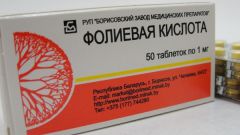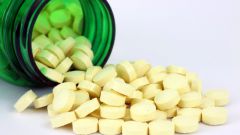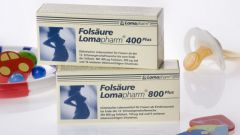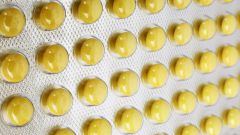Symptoms of Allergy to folic acid
Folic acid is one of the three acids most commonly cause allergies (the others being ascorbic and salicylic). Some of the symptoms of this condition are considered to be dangerous. Typical manifestations of Allergy to folic acid include: skin itching, urticaria, and various dermatitis, allergic rashes on the skin, bronchial asthma.
To the most formidable symptoms include angioedema and anaphylactic shock. Swelling of the larynx leading to difficulty breathing, its symptoms are bluish or pale skin, shortness of breath. If not to render aid in time, the patient may die from suffocation. Anaphylactic shock is a severe allergic reaction developing within a few minutes. It is characterized by depression of vital body functions, in particular, the pressure drop, in this case, the necessary emergency medical care.
Allergy to folic acid can lead to such serious diseases as eczema and asthma.
Treatment of Allergy to folic acid
When the first signs of Allergy to vitamin B9 should stop taking it and consult a doctor. Folic acid enters the body not only because of its containing medicines, but with food. The substance is contained in the following products: leafy plants (spinach, mint, parsley, nettle, lettuce), salmon, tuna, lamb, beef, pork, cheese and cheese products, eggs. In case, if you use these products symptoms of Allergy, you should abandon them. Except for the termination of contact with the allergen, it is necessary to reduce the allergic reaction and to focus efforts on symptoms and their complications.
If the patient develops serious complications, life threatening, an urgent need to call the ambulance.
Within a certain period should be taken drug that should be prescribed by a doctor-allergist. In this case is justified by the administration of antihistamines. These drugs are divided into three generations. To means first generation refers to "Diphenhydramine", "Diazolin", "Tavegil". They have a relatively low efficiency, often cause side effects: drowsiness and slowed reactions, so they are contraindicated in the management mechanisms.
To antigistaminnam drugs of the second generation include "claritin", "Zyrtec" means third generation - "Telfast", "Aerius", they do not cause such side effects. As allergies can assign calcium to lower the level of histamine and increase vascular tone, as well as hormonal drugs (corticosteroids), diuretics and a variety of sorbents ("Polyphepan", enterosorbent, activated carbon).












